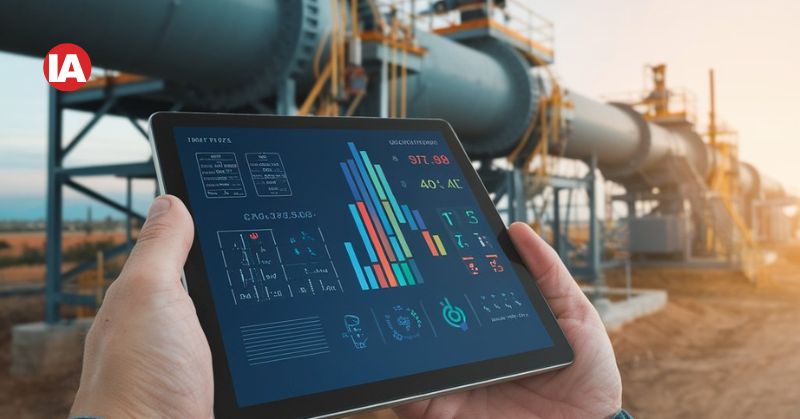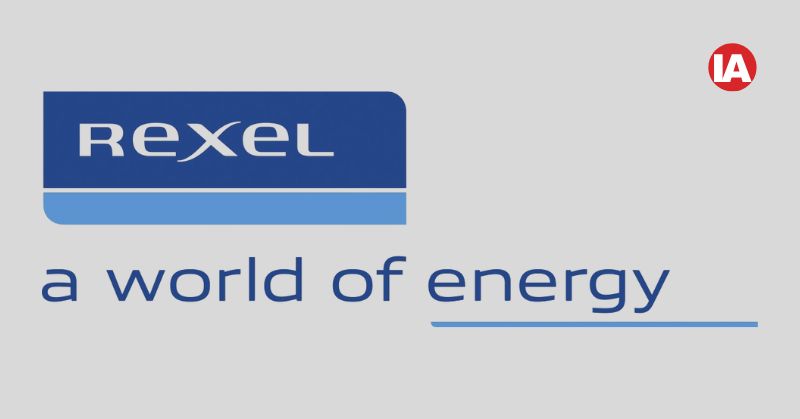
Smart Sustainability: How Digital Solutions are Driving Net Zero Target for Oil & Gas Industry
The oil and gas industry plays a crucial role in India’s energy landscape but is also a major contributor to greenhouse gas emissions. With India's commitment to achieving net-zero emissions by 2070, the sector faces increasing pressure to decarbonise. Advanced digital solutions, such as AI-driven monitoring, automation, and energy optimisation, are key to reducing carbon footprints, improving efficiency, and ensuring compliance with evolving sustainability regulations. Rexel India is leading this transformation by providing innovative solutions that empower oil and gas companies to align with India’s green energy goals.
![[object Object]](https://admin.industrialautomationindia.in/storage/articles/article-id3CRAiDdhhLlLshneTs91znTFjr4wpqV0jbYyzy.jpg)
Oil and gas contribute significantly to carbon footprints, methane leaks, and operational inefficiencies.
Oil and Gas Industry contributes a significant portion to country’s carbon emission, with estimates suggesting that it accounts for around 15% of total energy related greenhouse gas emissions, primarily through production, transportation, and processing of oil and gas products. This figure can increase considerably when considering the emission from the usage of these fuels as well. As one of the country’s largest energy sectors, oil and gas contribute significantly to carbon footprints, methane leaks, and operational inefficiencies. India’s commitment to achieving net-zero carbon emissions by 2070 has hence placed immense pressure on the industry driving them to take steps related to decarbonising themselves.

The urgency of decarbonisation in India's oil & gas sector
The oil and gas industry in India accounts for a significant share of greenhouse gas (GHG) emissions. With over 80% of its dependency on fossil fuel primarily for fulfilling the growing energy needs, the industry is slowly and steadily becoming the epicentre for carbon emission. And with the increasing regulatory push from the government, industry is required to align their operations with:
- The Net-Zero Roadmap (2070 Goal) – India's long-term decarbonisation vision.
- India’s Green Hydrogen Mission – Reducing reliance on fossil fuels.
- The Methane Pledge – Reducing methane emissions from oil and gas operations.
- Carbon Trading & ESG Reporting Regulations – Ensuring compliance with sustainability frameworks.
Addressing these challenges and achieving net-zero emissions requires innovative solutions that optimise energy efficiency, reduce carbon intensity, and drive digital transformation. A strategic shift toward digitalisation and automation, where advanced industrial software solutions play a crucial role in mitigating these obstacles.
Rexel India, a leader in Industrial Automation offerings, has been at the forefront of this transition. By leveraging new age technological solutions provided through Rexel India, the oil and gas industry can optimise operations, enhance energy efficiency, monitor emissions, and drive sustainable practices. These solutions not only help companies meet India’s decarbonisation goals but also improve profitability, compliance, and operational resilience.
Given these evolving mandates, adopting intelligent digital solutions through Rexel India is essential to achieving sustainability targets.
How Rexel India supports India’s net zero goals
1. Through Establishing Intelligent and Sustainable Operations
Rexel India provides industrial control and supervisory solutions that amalgamates real-time monitoring, AI-driven analytics and automation across oil and gas facilities. It contextualises operations with secure, enterprise-wide visualisation of continuous operational improvement and real time decision support. By doing so, it helps in:
a) Real-Time Energy Monitoring & Optimisation: Oil refineries and gas processing plants in India often suffer from higher energy inefficiencies due to outdated equipment and manual monitoring. Advanced Solutions through Rexel India provides a real-time energy dashboard, tracking power usage, fuel consumption, and emissions across facilities. With AI-based recommendations, companies can identify energy wastage and optimise consumption, significantly lowering their carbon footprint.
b) Carbon Footprint Reduction: Many offshore and onshore oil fields in India use aging infrastructure, leading to higher emissions and energy loss. Predictive maintenance suggestions help in monitoring the health of assets, reducing unplanned shutdowns and excessive fuel burn. Automated workflows allow for seamless operation shifts between renewable energy sources and traditional power, ensuring lower emissions.
c) Seamless Integration with Green Hydrogen & Renewable Energy: With India's push toward green hydrogen production (through its National Green Hydrogen Mission), aiming at a target to produce 5 million metric tonnes per annum by 2030, oil and gas industry is required to combine renewable sources into their operations. Advanced Solutions provided through Rexel India enables the smooth transition between conventional power and renewable energy, reducing reliance on fossil fuels.
2. Enhancing Operational Efficiency for Sustainable Performance
Rexel India provides SCADA solutions whichare a next-generation supervisory control and data acquisition system that empowers oil and gas plants with better control, automation, and sustainability insights. It helps in achieving net-zero targets by:
a) AI-Driven Leak Detection and Emission Control: Gas leaks from pipelines, refineries, and offshore rigs contribute significantly to climate change. The solution provided through Rexel India uses real-time sensors and AI-based analytics to detect even the smallest gas leaks before they escalate. By integrating automated shut-off mechanisms, companies can reduce unnecessary emissions and energy loss.
b) Intelligent Process Optimisation for Lower Carbon Emissions: Indian refineries and LNG terminals lead to excessive CO2 emissions as they operate at high energy intensities. Advanced solutions through Rexel India continuously analyses data from various data points like pressure sensors, temperature gauges, and energy meters to optimise heat exchangers, compressors, and gas turbines. This helps the organisation to cut emissions and energy cost thereby ensuring maximum fuel efficiency and lowering their carbon footprint.

The future of decarbonisation in india’s oil & gas sector
As India inches towards its 2070 target of net zero, digital solutions will be the backbone of sustainable operations in oil and gas. With the Advanced Solutions provided by Rexel India, companies can leverage to:
- Reduce emissions through AI-powered analytics
- Improve energy efficiency using predictive maintenance
- Integrate renewable energy seamlessly into existing operations, and
- Ensure compliance with India's evolving carbon regulations.
By embracing digitalisation and automation, India’s oil and gas industry can turn sustainability challenges into long-term competitive advantages.
Conclusion
Achieving net zero is not just a distant goal—it is a business assertion. Oil and gas companies that fail or delay to adopt digital transformation risk falling behind in an increasingly regulated market. With advanced solutions through Rexel India, companies can achieve real-time emissions monitoring, energy efficiency, and intelligent automation, making their refineries smart and sustainable, thereby ensuring they meet India’s ambitious sustainability goals.
In the end, it won't be wrong to say that Digital is certainly the future, and with the correct technology, net zero is not just a possibility—it’s an inevitable reality.
For additional insights, please contact: Ashwini Singh, AGM – Sales & Marketing, Rexel India Pvt Ltd. Cell: +91-7888025310. Email: ashwini.singh@rexel.co.in